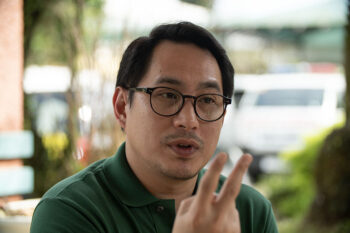GENERAL SANTOS CITY (MindaNews / 12 Feb) – Headlined in the early evening late news reports of two top Philippine newspapers and a leading television-news station last Tuesday, February 11, was Pope Benedict XVI’s announcement of his decision to resign on February 28. Reported by the wire services, the news must have been worldwide. It was lead story in The New York Times and The Washington Post.
Pope Benedict XVI is the first Pope to resign since 1415 (598 years ago) when Pope Gregory XII “left the papacy … to end what was known as the Western Schism among several competitors for the papacy” (The New York Times). The announcement was made at the Consistory also convoked for three canonizations, February10, 2013.
The announcement published in several languages tells the reason for the resignation. Addressing the cardinals, “Dear Brothers”, he said:
“I have convoked you to this Consistory, not only for the three canonizations, but also to communicate to you a decision of great importance for the life of the Church.
“After having repeatedly examined my conscience before God, I have come to the certainty that my strengths, due to an advanced age, are no longer suited to an adequate exercise of the Petrine ministry.
“I am well aware that this ministry, due to its essential spiritual nature, must be carried out not only with words and deeds, but no less with prayer and suffering. However, in today’s world, subject to so many rapid changes and shaken by questions of deep relevance for the life of faith, in order to govern the bark of Saint Peter and proclaim the Gospel, both strength of mind and body are necessary, strength which in the last few months, has deteriorated in me to the extent that I have had to recognize my incapacity to adequately fulfill the ministry entrusted to me.
“For this reason, and well aware of the seriousness of this act, with full freedom I declare that I renounce the ministry of Bishop of Rome, Successor of Saint Peter, entrusted to me by the Cardinals on 19 April 2005, in such a way, that as from 28 February 2013, at 20:00 hours, the See of Rome, the See of Saint Peter, will be vacant and a Conclave to elect the new Supreme Pontiff will have to be convoked by those whose competence it is.”
In Catholic Philippines, the message should be taken not only as “of great importance for the life of the [Catholic] Church” but as fitting for the political life of the country, especially for all political leaders so-called who cling to power despite grave incapacities of which age is the least. If the Pope has decided to resign due to his “certainty” that he is “no longer suited to an adequate exercise” of his ministry, Philippine elective officials must, from time to time, seriously discern their fitness to continue in office.
Serious incapacity comes in different forms regardless of age – physical, intellectual, moral and conflict of interest. Concrete instances, recent past and present, are stark reminders for Filipinos to learn from the Pope’s resignation.
How many continue in office despite their seriously lingering or incapacitating illness? Former President, now Pampanga congressional representative, Gloria Macapagal-Arroyo is the most deplorable example. She should have resigned two years ago. But she has not just held on to her seat; she is running for reelection.
Physical incapacity is not just due to illness. Remember former Rep. Romeo Jalosjos? He
was jailed for the unbailable crime of statutory rape. Instead of resigning, he continued in office. Reelected in the subsequent election, he set up an office in Bilibid Prison. After conviction, he remained in office while his life sentence was on appeal. How many elective officials are like Jalosjos?
How many run for office despite intellectual incapability and continue in office on the strength of wealth and popularity?
Like Rep. Emmanuel Pacquiao who attends Congress only when not preparing for his boxing matches, movie actors continue doing movies while in office. Their elective posts are only sidelines. Theirs is conflict of interests. Members of Congress and local government officials who are frequently absent from their offices are in the same boat. There are other forms of conflict of interests that incapacitate elective officials to serve according to their mandate.
In the United States, European and some Asian countries, members of Congress and the Parliament would immediately resign upon the publication of their involvement in sex, marital and other scandals. They consider themselves incapacitated to serve. Not in the Philippines!
As Catholics, Filipino elective officials from the President down to barangay council men should take it from Pope Benedict XVI: From time to time, they must examine their conscience; when certain that they “are no longer suited to an adequate exercise” of their mandate due to certain incapacity, they must resign.
Indeed, the true state of political life in the Philippines reflects the true state of the Filipino politicians’ conscience. (Patricio P. Diaz/MindaNews)







